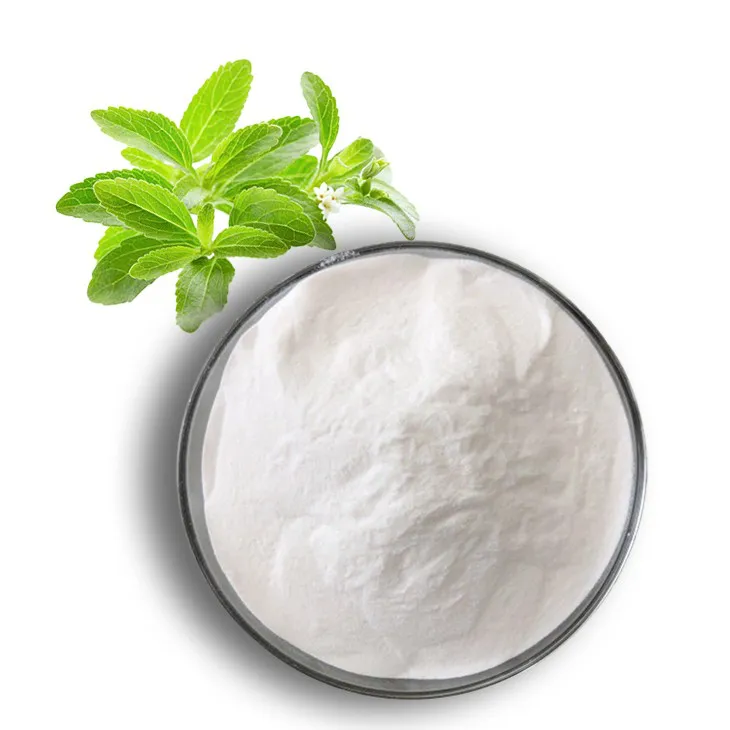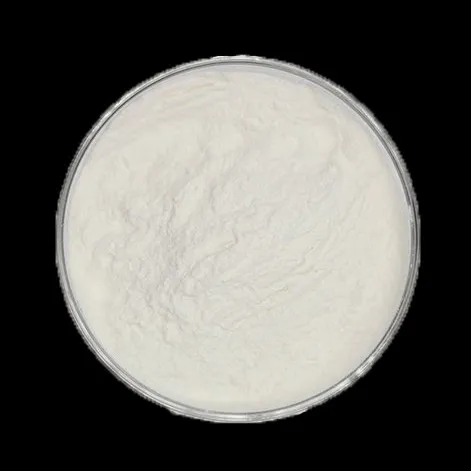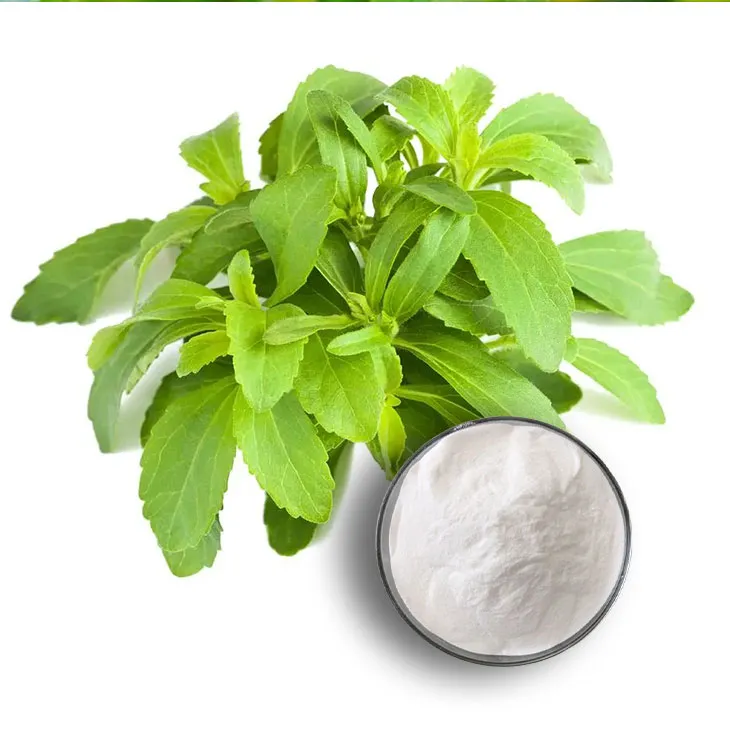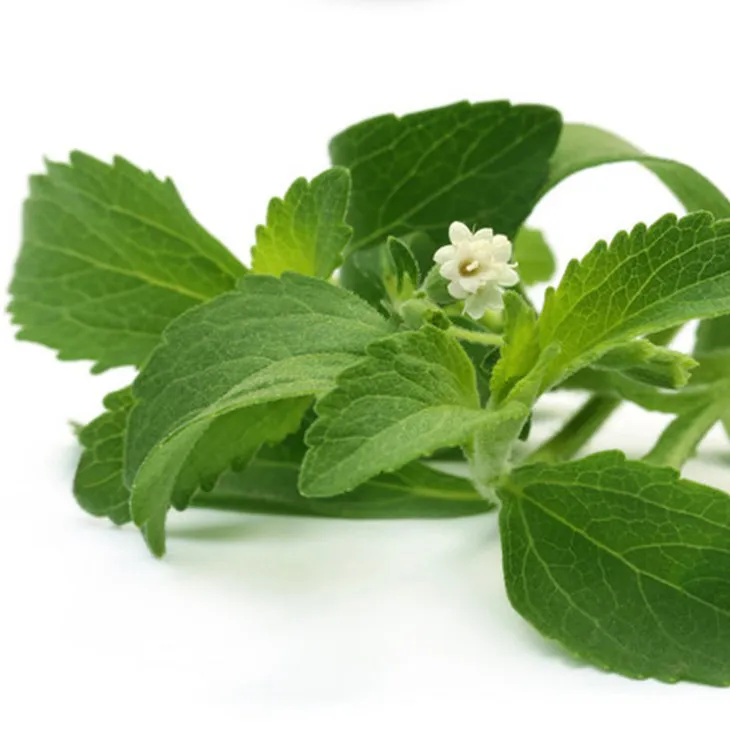- 0086-571-85302990
- sales@greenskybio.com
Regarding Stevia Extract: A Zero - Calorie Sweetener from Natural Stevia.
2024-12-16

Introduction to Stevia Extract
Stevia Extract has emerged as a remarkable alternative in the world of sweeteners. Derived from the stevia plant, it offers a zero - calorie option for those seeking sweetness. The stevia plant, native to South America, has been used for centuries by indigenous peoples for its sweet - tasting leaves. Today, through modern extraction methods, the essence of this plant is transformed into a highly useful sweetener.

The Appeal of Zero - Calorie Sweetness
In a world where health and fitness are of increasing importance, the concept of zero - calorie sweetness is highly appealing. Consumers are becoming more conscious of their calorie intake, especially when it comes to sweet products. Traditional sweeteners like sucrose are high in calories and can contribute to weight gain and other health issues such as diabetes. Stevia Extract, on the other hand, provides a sweet taste without adding any calories to the diet.
This is not only beneficial for those on a weight - loss journey but also for individuals with certain health conditions such as diabetes. People with diabetes need to carefully monitor their blood sugar levels, and high - calorie sweeteners can cause spikes in blood glucose. Stevia extract, being a zero - calorie sweetener, does not have this negative impact on blood sugar levels, making it a suitable choice for diabetics.

Processing of Stevia Extract
The process of obtaining stevia extract from the stevia leaves is a carefully crafted one. First, the stevia leaves are harvested at the appropriate time to ensure maximum sweetness and quality. Harvesting too early or too late can affect the taste and potency of the extract.
After harvesting, the leaves are typically dried. Drying helps to preserve the leaves and prepare them for the extraction process. There are different methods of drying, including natural sun - drying and mechanical drying. Once the leaves are dried, the extraction process begins.
The extraction process involves using solvents or other techniques to isolate the sweet compounds from the leaves. These sweet compounds, mainly steviol glycosides, are what give stevia extract its characteristic sweetness. The extracted compounds are then purified to remove any impurities and to ensure a high - quality product.

Versatility in Food and Drink Applications
One of the great advantages of stevia extract is its versatility in food and drink formulations. It can be used in a wide range of products, from beverages to baked goods.
Beverages
In the beverage industry, stevia extract is a popular choice. It can be used in soft drinks, juices, and even coffee and tea products. For example, many diet sodas now use stevia extract as a zero - calorie sweetener instead of artificial sweeteners like aspartame or saccharin. Stevia - sweetened juices are also becoming more common, providing consumers with a healthier alternative to traditional sweetened juices.
Baked Goods
When it comes to baked goods, stevia extract can be used as a substitute for sugar. However, it is important to note that because stevia extract is much sweeter than sugar, adjustments need to be made in the recipe. Bakers may need to use less stevia extract compared to the amount of sugar they would normally use, and they may also need to add other ingredients to compensate for the texture and volume that sugar provides. Some bakers have successfully created delicious cakes, cookies, and muffins using stevia extract, providing a low - calorie or zero - calorie option for those with a sweet tooth.
Other Food Products
Stevia extract can also be used in other food products such as dairy products, confectionery, and sauces. In dairy products like yogurt, it can add a touch of sweetness without the added calories. In confectionery, it can be used to create sugar - free candies and chocolates. And in sauces, it can balance the flavors and add a bit of sweetness without increasing the calorie count.

Meeting the Needs of Health - Conscious Consumers
Health - conscious consumers are constantly on the lookout for products that are both delicious and healthy. Stevia extract fits this bill perfectly. It allows consumers to enjoy sweet - tasting products without the guilt of consuming excess calories. For those who are trying to cut down on their sugar intake, stevia extract provides a viable alternative.
Moreover, stevia extract is often considered a natural alternative to artificial sweeteners. Many consumers are wary of artificial sweeteners due to concerns about potential health risks. While the safety of most artificial sweeteners has been approved by regulatory agencies, some consumers still prefer to avoid them. Stevia extract, being derived from a plant, is seen as a more natural and "clean" option.
Benefits for the Environment
In addition to its health benefits, stevia extract also has environmental advantages. As a plant - based sweetener, stevia has a lower environmental impact compared to some other sweeteners.
The production of sugar, for example, requires large amounts of land, water, and energy. Sugarcane and beet farming can have negative impacts on soil quality, water resources, and biodiversity. In contrast, stevia plants can be grown in a more sustainable manner. They require less water and land compared to sugarcane and beet, and they can be grown in a variety of climates.
Additionally, the processing of stevia extract is generally less energy - intensive compared to the processing of some other sweeteners. This makes stevia extract an environmentally friendly choice for those who are concerned about the environmental impact of the products they consume.
Challenges and Considerations
While stevia extract has many benefits, there are also some challenges and considerations associated with its use.
One of the main challenges is its taste profile. Stevia extract has a distinct taste that some consumers may find different from traditional sweeteners like sugar. It has a slightly bitter or licorice - like aftertaste that can be off - putting for some people. However, through technological advancements and formulation techniques, this aftertaste can be minimized.
Another consideration is regulatory approval. Different countries have different regulations regarding the use of stevia extract in food and beverages. Some countries have strict regulations on the purity and safety of stevia extract, while others are more lenient. Manufacturers need to ensure that they comply with the regulations in the countries where they sell their products.
There is also the issue of cost. The production of stevia extract can be more expensive compared to some traditional sweeteners. This can be a barrier for some manufacturers, especially those producing low - cost food products. However, as the demand for stevia extract grows and production methods improve, the cost is expected to come down.
Conclusion
Stevia extract is a zero - calorie sweetener with a great deal of potential. It offers a natural, healthy, and environmentally friendly alternative to traditional sweeteners. While there are some challenges associated with its use, such as taste profile, regulatory approval, and cost, these are being addressed through ongoing research and development. As consumers become more health - conscious and environmentally aware, the demand for stevia extract is likely to increase. It is an exciting time for the stevia extract industry, and it will be interesting to see how it continues to develop and evolve in the future.
FAQ:
What is stevia extract?
Stevia extract is a zero - calorie sweetener that is obtained from the stevia plant. It is carefully processed from the stevia leaves to preserve its sweetening capabilities.
Why is stevia extract considered a zero - calorie sweetener?
Stevia extract contains no calories because of its natural composition. It comes from the stevia plant and through the extraction process, it retains its sweet taste without adding caloric content to the diet.
Can stevia extract be used in all types of food and drinks?
It is very versatile and can be used in a wide variety of food and drink formulations. However, the specific usage may depend on factors such as the nature of the product and regulatory requirements in different regions.
Who are the main consumers of stevia extract?
The main consumers are health - conscious individuals who want to enjoy sweet flavors without consuming calories. Also, environmentally - aware consumers are attracted to stevia extract as it is plant - based and a sustainable source of sweetness.
How is stevia extract processed?
The stevia extract is processed from the stevia leaves. The process is designed to carefully extract and retain the sweetening properties of the plant, though the exact details of the process can vary depending on the manufacturer.
Related literature
- Stevia: A Natural Zero - Calorie Sweetener - Properties, Applications, and Safety"
- "The Potential of Stevia Extract in the Food and Beverage Industry"
- "Stevia: From Plant to Zero - Calorie Sweetener - A Comprehensive Review"
- ▶ Hesperidin
- ▶ citrus bioflavonoids
- ▶ plant extract
- ▶ lycopene
- ▶ Diosmin
- ▶ Grape seed extract
- ▶ Sea buckthorn Juice Powder
- ▶ Beetroot powder
- ▶ Hops Extract
- ▶ Artichoke Extract
- ▶ Reishi mushroom extract
- ▶ Astaxanthin
- ▶ Green Tea Extract
- ▶ Curcumin Extract
- ▶ Horse Chestnut Extract
- ▶ Other Problems
- ▶ Boswellia Serrata Extract
- ▶ Resveratrol Extract
- ▶ Marigold Extract
- ▶ Grape Leaf Extract
- ▶ blog3
- ▶ blog4
- ▶ blog5
-
Pure 85% Tomentil Extract.
2024-12-16
-
Quercetin
2024-12-16
-
Beta Carotene
2024-12-16
-
Lemon Juice Powder
2024-12-16
-
Nutmeg Extract
2024-12-16
-
Curcumin
2024-12-16
-
Passionflower Extract
2024-12-16
-
Agaricus Blazei Extract
2024-12-16
-
Clove Powder
2024-12-16
-
Garcinia Cambogia Extract
2024-12-16
-
Almond Extract Powder
2024-12-16





















